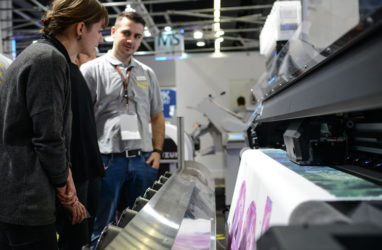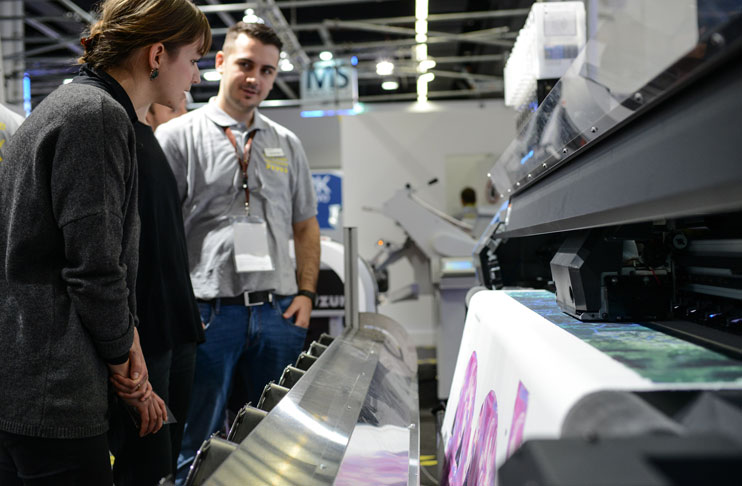
In ‘Digital Textile Micro-Factory’ that will be presented at Texprocess under Industry 4.0 theme, whole production process will be demonsrated to the visitors.
Held between the dates of 9-12 May 2017 in Frankfurt, Germany, Texprocess will bring all technical textile and nonwoven industry together. For the first time, Industry 4.0 affecting every sector will be evaluated at the fair which is organized by Messe Frankfurt. ‘Digital Textile Micro-Factory’ to be demonsrated in this regard, will show the whole apparel process from design to digital printing and automatic cutting to manufacturing live to the visitors.
Prepared by the cooperation of German Institutes for Textile and Fibre Research in Denkendorf and a number of well-known companies in the textile sector, at the micro-factory at Hall 6.0 integrated manufacturing processes will be shown lively to the visitors.
Stating that micro factories offer the opportunity to put ideas into practice immediately and to try out new business models, based on specific customer requirements especially when it comes to ‘fast fashion’ Vice President Textiles and Textile Technologies at Messe Frankfurt Olaf Schmidt continued thusly; “They facilitate a type of production that is responsive to the market and, as an additional bonus, ensure optimised use of material, so as to contribute to greater levels of sustainability in textile processing,”
Elgar Straub, General Manager of the VDMA’s Textile Care, Fabric and Leather Technologies Division added these words; “The demand for individualised products necessitates making the entire production process more flexible. Serial production with; at the same time; smaller and smaller batches, right down to batches of just one; is only possible with industrially manufactured individual products. These fully automated and networked processes can now be implemented through the use of digitalisation,”
Integrated Processes Will Be Demonstrated at Texprocess
The first step of the micro-factory’s manufacturing is CAD/Design area. On this area; creative designs are put into effect in a virtual reality and/or adapted with the help of computer-aided design (CAD) and the Vidya 3D-simulation software. Emerging data are immediately merged with data for subsequent processes; such as the digital printing of the textile, the cutting out and sewing. It is stated that micro-factory’s partner on this area is Assyst, a part of Human Solutions Group.
In the next step; Printing, large-format inkjet printing, involving sublimation printing on polyester and pigment printing on cotton and mixed fibres will be demonstrated. . Manufacturing tasks can be flexibly combined here with various printing parameters so as to produce a print with reproducible colours. The partner on this area; Ergosoft and Mimaki as well as the software and hardware specialists Coldenhove and Monti Antonio are the ones ensuring optimum printing results.
After that, it is time for Cutting area. At this juncture in the production process, the individual orders need first to be identified without anyone touching them. . Identification is made possible by automatically loading the appropriate data files for the cutting-out process. A feeder system at the cutter ensures that the material is transported as smoothly as possible and without distortion. This partner of this process; where camera systems recognise the cutting points; as a result of which the path the cutter is to take; is optimised and a top-quality cut can be achieved; is Zünd.
On the next Assembling process; the cut-out elements of the various orders are also identified in a context-specific manner and added to the garment. Seripress supports this process. Other supporters of the digital micro-factory are stated as Eschler Textil and Schoeller Textil.
Presented at Heimtextil held on January this year, received full appreciation from the visitors.

